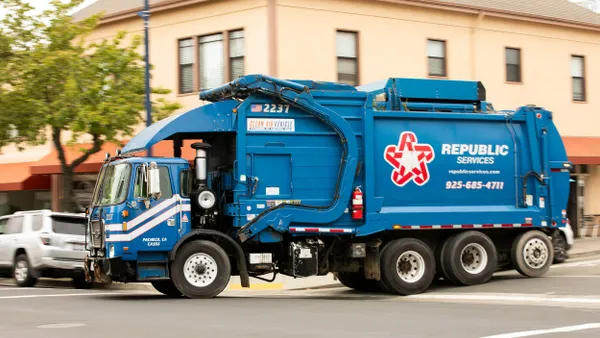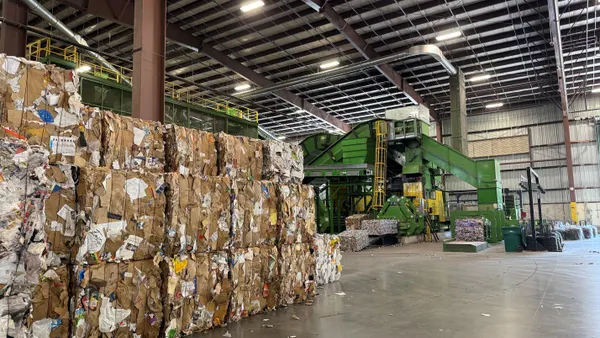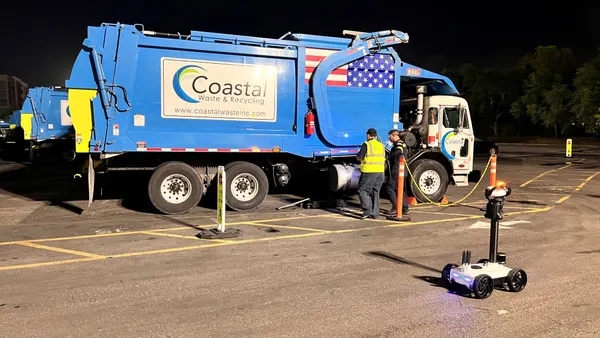UPDATE: Jan. 17, 2019: The Houston City Council has approved more than $5 million in spending to help fix the city's ongoing collection delays. This includes $500,000 for a five-vehicle contract with Big Truck Rentals, and the remaining $4.56 million to Texas Pride Disposal Solutions for the temporary service of 10 recycling routes.
During the meeting, Houston Mayor Sylvester Turner said “the steps that we have taken today will help to bridge us until the new equipment comes in," according to Houston Public Media.
The Houston Chronicle previously reported the city has spent approximately $948,000 on overtime since mid-November for both drivers and mechanics. An irregular vehicle purchasing schedule, due to the city's lack of a direct fee for collection service, was cited as one of the main issues. That will begin to change this year, with dozens of new vehicles starting to come in on a rolling basis.
Dive Brief:
- Houston residents have been experiencing recycling collection delays for weeks, according to reports from Click2Houston, the Houston Chronicle and other outlets. The city is currently trying to hire 20-25 collection drivers and a similar number of truck mechanics.
- The city's Solid Waste Management Department has said its crews are "working diligently" to prioritize trash collection first, adding that high holiday volumes and "nagging equipment issues" are also factors. The Houston City Council recently approved $14.6 million in spending for 69 new trucks that will be delivered by summer.
- In neighboring Louisiana, residents of Shreveport are experiencing similar delays. KSLA reports that sick days, high holiday volumes and an estimated shortage of 17 drivers have all created challenges for the city's Department of Public Works in recent weeks.
Dive Insight:
As the nationwide shortage of qualified applicants with commercial driver's licenses drags on for yet another year, these types of collection delays have become increasingly common in municipalities around the country. The lack of qualified mechanics is also a growing concern.
Similar issues have spurred contract tensions in many instances, especially when service issues persist for extended periods of time. These are a serious headache for local officials that are hearing from their angry constituents. In some cases, municipalities have chosen to change service providers or even cancel contracts early as a result. Neither Houston or Shreveport have that option, as both handle their own collection service. At this point, their best option may be making the respective job postings in each city as attractive as possible.
According to an update from Houston Council Member Ellen Cohen, the city's mayor has decided to lift a multi-agency hiring freeze to help speed up this process. Houston also has other factors hindering its progress. Lasting damage to both collection vehicles and recycling carts from Hurricane Harvey has been cited as another barrier to returning to normal service levels.
At the national level, the industry's largest companies have taken a variety of approaches to improve their recruitment and retention rates. Common themes have included market-based wage increases, bonuses, more flexible scheduling models, additional spending on equipment and employee facilities, more training opportunities, second chance hiring pilots and even help from outside recruitment firms.











